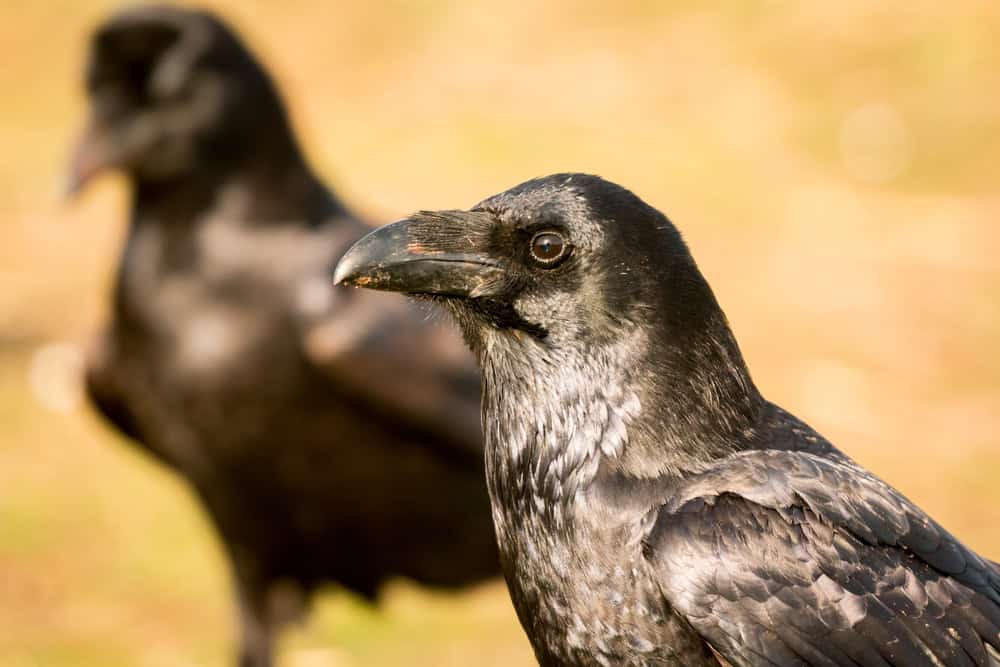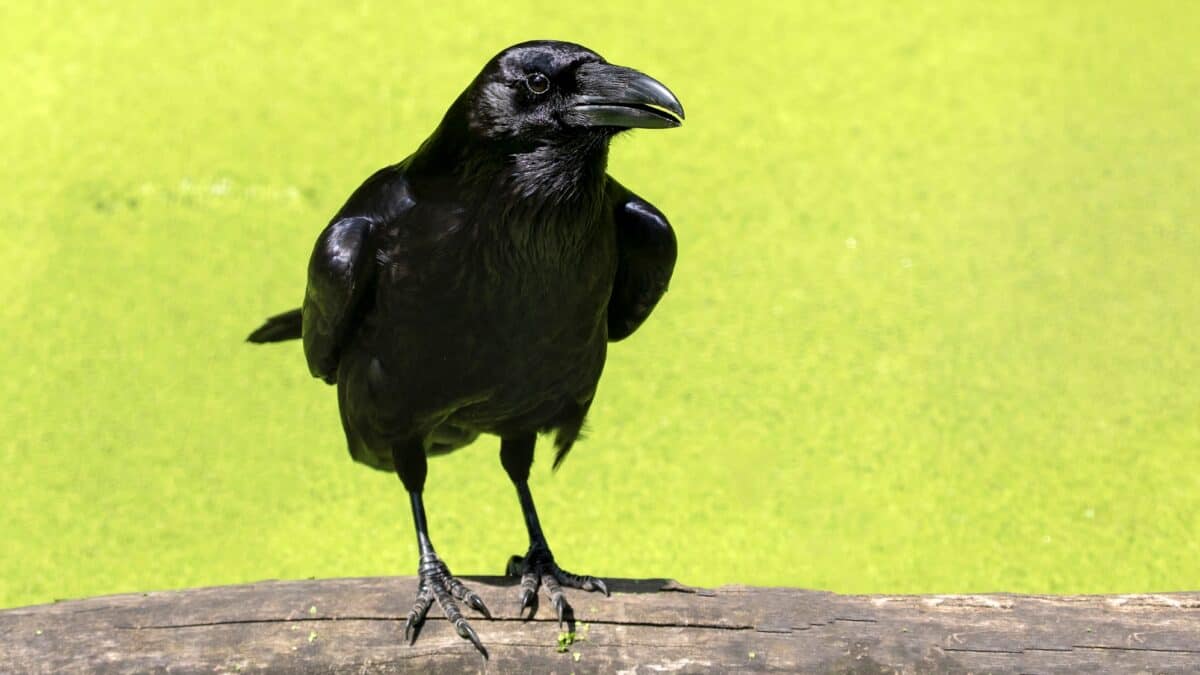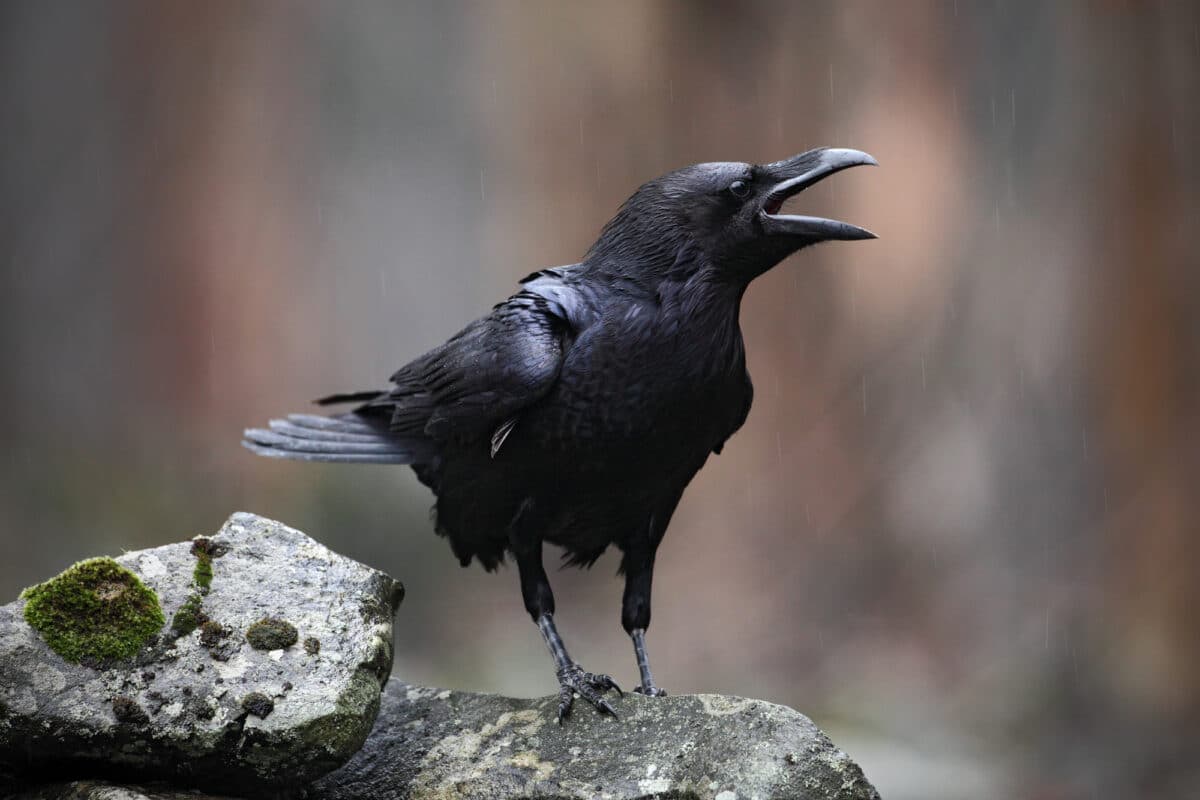The unexpected brilliance of crows is not just a revelation within the animal kingdom but a fascinating window into the broader understanding of cognition itself. As these avian wonders showcase abilities that were once thought the domain of primates, they challenge preconceived notions, encouraging scientists and laypeople alike to reconsider what it means to be intelligent. This article delves into the captivating realm of crow intelligence and explores how these birds have become key players in redefining cognitive science.
The Remarkable Intelligence of Crows

Crows, members of the corvid family, are renowned for their striking intelligence. Studies have shown that they possess problem-solving skills comparable to that of a seven-year-old child, demonstrating abilities to craft tools and remember human faces. Their intelligence emphasizes the complex nature of avian brains and challenges traditional views of animal cognition.
The Brainpower Behind the Beak

Despite their small size, crow brains are densely packed with neurons. This complex network allows for advanced cognitive capabilities, such as using tools to obtain food or solving puzzles. These findings underscore the importance of brain structure over size, shifting the focus from mere scale to more intricate neural connectivity.
Social Structures and Learning

Crows are social animals, living in complex family units. Their social interactions require sophisticated communication skills, which involve learning and memory. Young crows learn by observing adult behavior, indicating a form of cultural transmission that was once thought exclusive to primates.
Tool Use Among Avian Innovators

One of the most fascinating aspects of crow intelligence is their ability to use tools, a trait once believed to be exclusive to humans and some primates. Crows have been observed creating hooks from sticks to extract insects from bark, showcasing their problem-solving prowess and creativity.
Crows’ Memory Mastery

Memory plays a crucial role in the survival of crows, who often hide food for future use. Remarkably, they can recall where they have stored food even weeks later. This ability requires not only memory but also planning, attributes that encourage a re-evaluation of avian intelligence.
Cognitive Challenges and Problem-Solving

Experimental setups involving crows have demonstrated their astounding problem-solving skills. When presented with puzzles requiring multiple steps to obtain rewards, crows have demonstrated the capability to understand the problem and execute a solution, reflecting foresight and planning.
Adapting to Urban Environments

Crows have proven to be incredibly adaptable, thriving in urban landscapes worldwide. Their ability to use traffic to crack open nuts or disrupt animal traps to access food showcases their ability to learn from and adapt to changing environments, displaying behavioral flexibility.
Crow Communication: Beyond Caws

Beyond their distinctive ‘caw,’ crows exhibit a rich repertoire of communication styles. These include vocal mimicry and distinct calls used to warn others of dangers or signal social dynamics, demonstrating an advanced level of communication previously thought exclusive to complex mammals.
Innovative Crow Research Methods

Innovative research methods using both field observation and controlled laboratory settings have contributed significantly to our understanding of crow intelligence. These diverse approaches help illuminate the cognitive complexities of crows, offering a comprehensive picture of their mental capabilities.
The Implications for Evolutionary Biology

Understanding crow intelligence provides insights into the evolution of cognition across species. By studying animal intelligence beyond mammals, scientists are able to trace the evolutionary paths that lead to advanced cognitive traits, offering a broader lens through which to view intelligence.
Impacts on Human Understanding of Intelligence

The study of crow intelligence encourages a rethinking of intelligence itself. It expands our views beyond the human-centric definitions and encourages the recognition of diverse intelligences across species, prompting a more inclusive understanding of cognition that is not solely tied to human characteristics.
Respecting Animal Intelligence: A Broader Perspective

The intelligence of crows, along with other animals, urges a shift in perspectives on animal rights and welfare. Recognizing the cognitive capacities of different species might lead to enhanced conservation efforts and a reassessment of how humans interact with and impact animal lives.
In summary, the intelligence of crows provides an astounding glimpse into the broader spectrum of animal cognition. Their tool use, problem-solving skills, and social behaviors challenge our understanding of intelligence, urging a reconsideration of cognitive abilities in the animal kingdom. As researchers continue to explore these remarkable birds, crows remain a testament to the complexity and wonder found throughout nature.
- Why Some Animals Hold Funerals for Their Dead - August 16, 2025
- This Massive Crocodile Fossil Dwarfs Anything Alive Today - August 15, 2025
- From Symbol to Supper: The Cultural Journey of the Chicken - August 15, 2025

